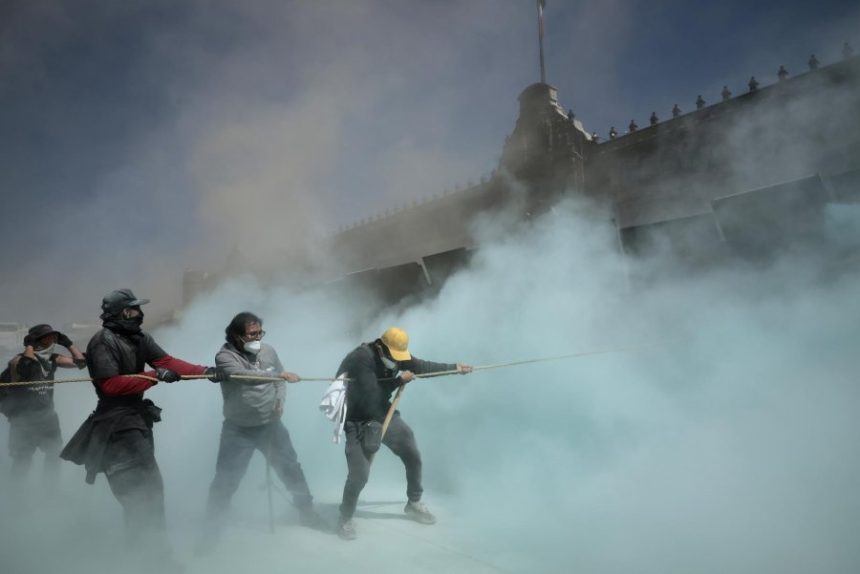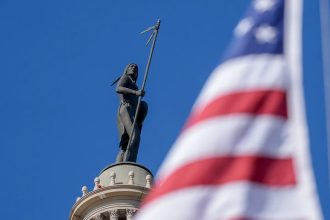Nov. 16 (UPI) — Injuries have been reported after clashes between police and decentralized Gen Z movement protesters in Mexico City on Saturday as demonstrations took place in more than 50 cities across Mexico.
Thousands of protesters organized through the Gen Z movement, a broad pattern of increased political activism sweeping the globe, had rallied in Mexico City to protest against President Claudia Sheinbaum for how her government has handled corruption and violent crime across Mexico.
Sheinbaum, a left-wing progressive member of the Movimiento Regeneración Nacional party, remains popular among Mexican voters but political youth organizations have become increasingly angry with violence from highly armed cartels gripping the nation.
In particular, the protests came after Carlos Manzo, the popular mayor of Uruapan in the state of Michoacán, was assassinated earlier this month while with his family celebrating Day of the Dead.
Manzo had cracked down against organized crime and the cartels in Uruapan before his death.
“They took away our Mexican Bukele, Carlos Manzo, to scare us. But they gave us a national hero,” read a banner at the protest Saturday, according to The New York Times.
The banner likened Manzo to El Salvador’s President Nayib Bukele, who has drawn admirers across the region for his aggressive campaign against gangs and the steep decline in violence that followed, even as rights groups warn about due-process abuses.
Pablo Vázquez Camacho, the public safety secretary in Mexico City, delivered a press conference Saturday night in which he discussed the mobilization of Mexico City police in response to the protests.
He said the city initially dispatched 800 police officers, as well as additional traffic control personnel and paramedics in preparation for the protests.
Vázquez said the demonstration was peaceful for many hours “until a group of hooded individuals began to carry out violent acts,” leading authorities to increase the police presence.
The group of “violent” protesters then allegedly assaulted police, throwing explosive devices and stripping them of their shields and their communication radios, Vázquez said.
Eventually, police were able to quell the protesters and confiscated hammers, chains and other objects being used as weapons.
The clashes led to 60 injured police officers who were treated on site with minor injuries, and 40 who were transferred to receive hospital care, Vázquez said. Of the injured police officers, four are receiving specialized care for non-life-threatening injuries.
Vázquez said police were seeking to identify all protesters involved and have so far detained some 20 people in connection with the violence against police.
According to the BBC, some 20 more people were injured during the clashes.
“We want to be very emphatic: we condemn the violent acts that occurred during the mobilization of this day, and we disapprove of the existence of these organized groups, as well as those who validate, often from a distance, support and back these acts from social media,” Vázquez said.
“We regret that the legitimate causes for which many marched are overshadowed by groups seeking to engage in violence and destabilize. We firmly reject that a march convened as an act of demonstration against violence should have violence and aggression as its main form of expression.”









